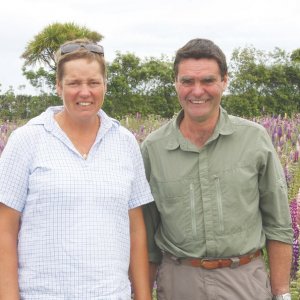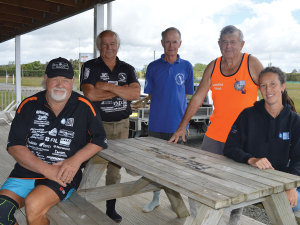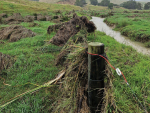Media releases from the awards’ parent body, the New Zealand Farm Environment Trust, have been flowing thick and fast since entries opened August 1 and in one region, Horizons, the bar has already come down.
Elsewhere those keen to have their systems scrutinised by an independent panel of judges have until October to put their hand up, with the exception of East Coast where the cut off is this Friday (September 21).
East Coast was a new region for the awards in 2010, bringing the total regions involved to nine.
“There are still some gaps and we are working on those,” NZFET general manager David Natzke told Rural News.
However, with everything for the awards having to be signed and sealed by July 1 for the following year’s events, it’s too late for any of the “gaps” – Auckland, Taranaki, Nelson/Tasman/Golden Bay, and West Coast – to be filled for the 2013 titles.
This year’s awards do feature two new sponsors: Meridian and Donaghy’s.
“We now have a full complement of sponsors with naming rights: Ballance and eight others,” comments Natzke.
Meridian are backing an Energy Excellence Award. NZFE chairman Jim Cotman says the Trust identified the need for an energy award some time ago.
“Efficient energy use is an important part of sustainable farming, so we are delighted Meridian has stepped up to the plate and sponsored this award.”
Donaghy’s are behind the Farm Stewardship Award.
A common theme from previous entrants, winners or not, is the value of the feedback they receive from judges.
“It was all about the actual journey for me,” says John Evans, Canterbury.
“It wasn’t about the prizes, but it was a real honour to be judged by people I have looked up to in my farming career and be deemed by them as worthy of an award.”
His ability to manage water efficiently on 245ha finishing and cropping farm, Tregynon, at Dorie, was recognised in his winning the WaterForce Integrated Management Award in the 2012 Canterbury BFEAs.
The WaterForce Award recognises farmers who have developed and implemented integrated water management systems and processes for water used within their farming system. It takes into account the design of systems, efficiency of monitoring water use, water saved and cost-effectiveness.
BFEA judges were impressed with Tregynon’s well-planned irrigation infrastructure that includes a switching system that reduces pressure on the well water supply by ‘telling’ the second irrigator to start when the first one has finished its run.
Evans says accurate monitoring is crucial for efficient water management. He uses a Christchurch-based company for monitoring soil moisture content and water use. Crops are planned so they don’t all need watering at once.
“And if things get dry, we stop irrigating pasture and focus on the high-value crops.”
A 2ha dam was recently completed, capable of holding about a week’s supply of water which will be “utilised at the time of greatest need”.
Tregynon is run with the help of one fulltime labour unit and a student over summer. Evans is also assisted by his partner, Kai Tegels, and his 87-year-old father, Jack.
As well as the WaterForce Award, Tregynon won the Ballance Nutrient Management Award. It was Evans’ first time in the Ballance Farm Environment Awards.

















